No products in the cart.
Return To ShopBy Vivek Tejuja

This is a book that should be read by everyone. It is not only about sexual choices and rights exercised by women, but also about how technology enables that or sometimes not. Intimate City is a fascinating read about the business of pleasure and how that is coupled with the autonomy of the body, in relation to how the Internet has redeveloped intimacies in the times we live.
.
.
Intimate City looks at feminism and its understanding in the space of sex work, choice, and agency, all of this playing out in the city of Mumbai. I think Mumbai and its nuances plays out beautifully as another character altogether in this very reflective and profound non-fiction narrative of how sexual commerce comes full circle (well, almost does).
.
.
Manjima through her incisive and very detailed writing also looks at patriarchy and the role it plays throughout in the lives of not only sex workers, but also bar dancers, massage boys, and escort girls as service providers. It was for me very interesting as a queer man to see sex politics play out in this industry – with reference to how sexual commerce is viewed by the world at large, about whether it can ever be seen as a “regular” job, and how it all operates offline vs. online.
.
.
Intimate City, for some may not be revealing or earth-shattering in a sense. We think we might know it all, till we read something like this, and that’s all it takes perhaps to demolish our preconceived notions about who is paying for sex, and who is getting paid. I repeat, it is definitely a book that is a must-read for all.
Head to Vivek Tejuja’s blog for more book reviews or follow him on Instagram!






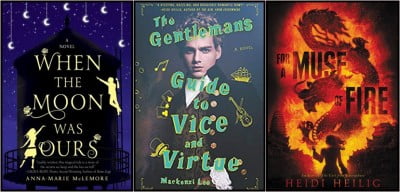



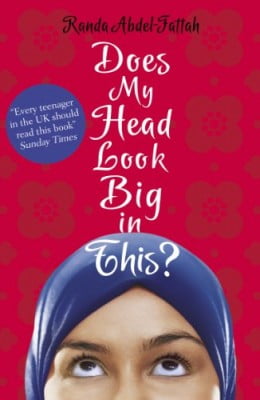
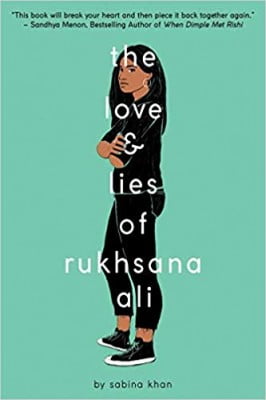
















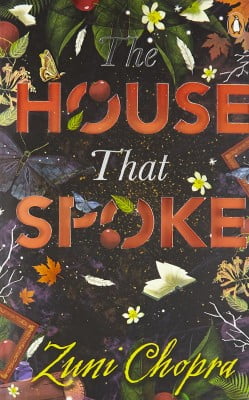









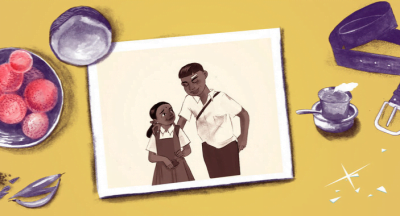
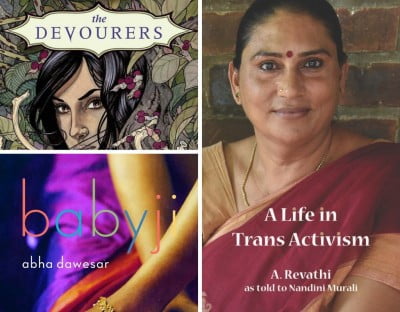
 Literature is an important lens through which to examine cultural shifts, as it is, in many ways, a microcosm for our society. Positive portrayals of same-gender love are slowly becoming more mainstream. Kai Cheng Thom’s Lambda finalist Fierce Femmes and Notorious Liars is one such book and the latest addition to Young Zubaan’s list of kickass feminist books for children and young adults. (find the link to our web store at the end of the article). For this year’s Pride celebrations, we have curated a list of five books which pertain to the truth of living as a queer person in the global South, or as a queer person of colour in the North.
Literature is an important lens through which to examine cultural shifts, as it is, in many ways, a microcosm for our society. Positive portrayals of same-gender love are slowly becoming more mainstream. Kai Cheng Thom’s Lambda finalist Fierce Femmes and Notorious Liars is one such book and the latest addition to Young Zubaan’s list of kickass feminist books for children and young adults. (find the link to our web store at the end of the article). For this year’s Pride celebrations, we have curated a list of five books which pertain to the truth of living as a queer person in the global South, or as a queer person of colour in the North. Translated from Marathi by acclaimed novelist Jerry Pinto, Sachin Kundalkar’s novel traces the story of a mysterious tenant who captures the hearts of two siblings Tanay and Anuja, when he arrives as an artist looking for lodging in their family home in Pune. The novel pairs interior monologues from Tanay and Anuja, both addressed to their beloved boarder, who charmed each of them before leaving without any explanation.
Translated from Marathi by acclaimed novelist Jerry Pinto, Sachin Kundalkar’s novel traces the story of a mysterious tenant who captures the hearts of two siblings Tanay and Anuja, when he arrives as an artist looking for lodging in their family home in Pune. The novel pairs interior monologues from Tanay and Anuja, both addressed to their beloved boarder, who charmed each of them before leaving without any explanation.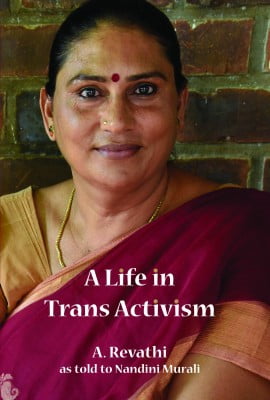 Published in 2016 by Zubaan, A Revathi’s second book traces her life, and her work in the NGO Sangama, which works with people across a spectrum of gender identities and sexual orientations. It narrates the tale of how she rose from office assistant to the director in the organisation. The first half of the book describes her journey as a trans woman, as she becomes an independent activist, theatre person, actor, writer and organiser for the rights of transgender persons. Later, Revathi offers insight into one of the least talked-about experiences in the gender spectrum: that of being a trans man. A Life in Trans Activism emphasizes the ways in which the trans identity intersects with other identities, and how these intersections contribute to unique experiences of oppression and privilege.
Published in 2016 by Zubaan, A Revathi’s second book traces her life, and her work in the NGO Sangama, which works with people across a spectrum of gender identities and sexual orientations. It narrates the tale of how she rose from office assistant to the director in the organisation. The first half of the book describes her journey as a trans woman, as she becomes an independent activist, theatre person, actor, writer and organiser for the rights of transgender persons. Later, Revathi offers insight into one of the least talked-about experiences in the gender spectrum: that of being a trans man. A Life in Trans Activism emphasizes the ways in which the trans identity intersects with other identities, and how these intersections contribute to unique experiences of oppression and privilege. Babyji is a daring coming of age story of 16-year-old Anamika Sharma, a student in New Delhi. Abha Dawesar’s second novel details the exploits of Anamika as she romances three women, juggling her studies and her lovers while attempting to finish school. The story is set against the backdrop of Mandal Commission’s recommendations in 1980, which proposed the doubling of seats for backward castes. An upper-caste woman herself, Anamika uses her academic expertise and sexual prowess, to liberate herself from the Brahmanical mores of the society that she inhabits. Babyji is a brave exploration and moral enquiry into what it means to be a growing woman who is coming to terms with her own sexuality. This novel is the winner of the 2005 Lambda Literary Award for Lesbian Fiction and of the 2006 Stonewall Book Award for Fiction.
Babyji is a daring coming of age story of 16-year-old Anamika Sharma, a student in New Delhi. Abha Dawesar’s second novel details the exploits of Anamika as she romances three women, juggling her studies and her lovers while attempting to finish school. The story is set against the backdrop of Mandal Commission’s recommendations in 1980, which proposed the doubling of seats for backward castes. An upper-caste woman herself, Anamika uses her academic expertise and sexual prowess, to liberate herself from the Brahmanical mores of the society that she inhabits. Babyji is a brave exploration and moral enquiry into what it means to be a growing woman who is coming to terms with her own sexuality. This novel is the winner of the 2005 Lambda Literary Award for Lesbian Fiction and of the 2006 Stonewall Book Award for Fiction. Indra Das’s debut novel is a love story between two shape shifting werewolves, Fenrir and Gevaudan — a gay couple — and their companion, a young Muslim woman called Cyrah. The shape shifters exist on the margins of society: they wander into Shah Jahan’s empire, fleeing persecution in their homeland. Alok Mukherjee, a Bengali professor of history who narrates the novel, is still reeling from an engagement that was broken off after his affairs with other men came out in the open. The Devourers refuses to be pigeonholed into a single genre; it borrows tropes and writing devices from dark fantasy, speculative fiction and science fiction. A chilling saga that spans across various centuries and continents, this novel showcases Das’s incredible prowess with language and rhythm. The Devourers won the 29th Annual Lambda Award in LGBT Science Fiction/ Fantasy/ Horror category.
Indra Das’s debut novel is a love story between two shape shifting werewolves, Fenrir and Gevaudan — a gay couple — and their companion, a young Muslim woman called Cyrah. The shape shifters exist on the margins of society: they wander into Shah Jahan’s empire, fleeing persecution in their homeland. Alok Mukherjee, a Bengali professor of history who narrates the novel, is still reeling from an engagement that was broken off after his affairs with other men came out in the open. The Devourers refuses to be pigeonholed into a single genre; it borrows tropes and writing devices from dark fantasy, speculative fiction and science fiction. A chilling saga that spans across various centuries and continents, this novel showcases Das’s incredible prowess with language and rhythm. The Devourers won the 29th Annual Lambda Award in LGBT Science Fiction/ Fantasy/ Horror category. A collection of speeches and essays by a self-described “black lesbian feminist warrior poet,” Sister Outsider is considered a ground breaking work by Audre Lorde. This book contains a great mix of ideas and tones; it has poems, interviews, journal entries, and speeches interspersed with aphorisms. It proved to be an important and necessary tool in the cannon of progressive theory when it was first published in 1984. Lorde’s work centres the experience of black lesbians and critiques a mostly white, academic community of second-wave feminists for overlooking blacks, gays and women, as well as the elderly and the disabled in their theories.
A collection of speeches and essays by a self-described “black lesbian feminist warrior poet,” Sister Outsider is considered a ground breaking work by Audre Lorde. This book contains a great mix of ideas and tones; it has poems, interviews, journal entries, and speeches interspersed with aphorisms. It proved to be an important and necessary tool in the cannon of progressive theory when it was first published in 1984. Lorde’s work centres the experience of black lesbians and critiques a mostly white, academic community of second-wave feminists for overlooking blacks, gays and women, as well as the elderly and the disabled in their theories.